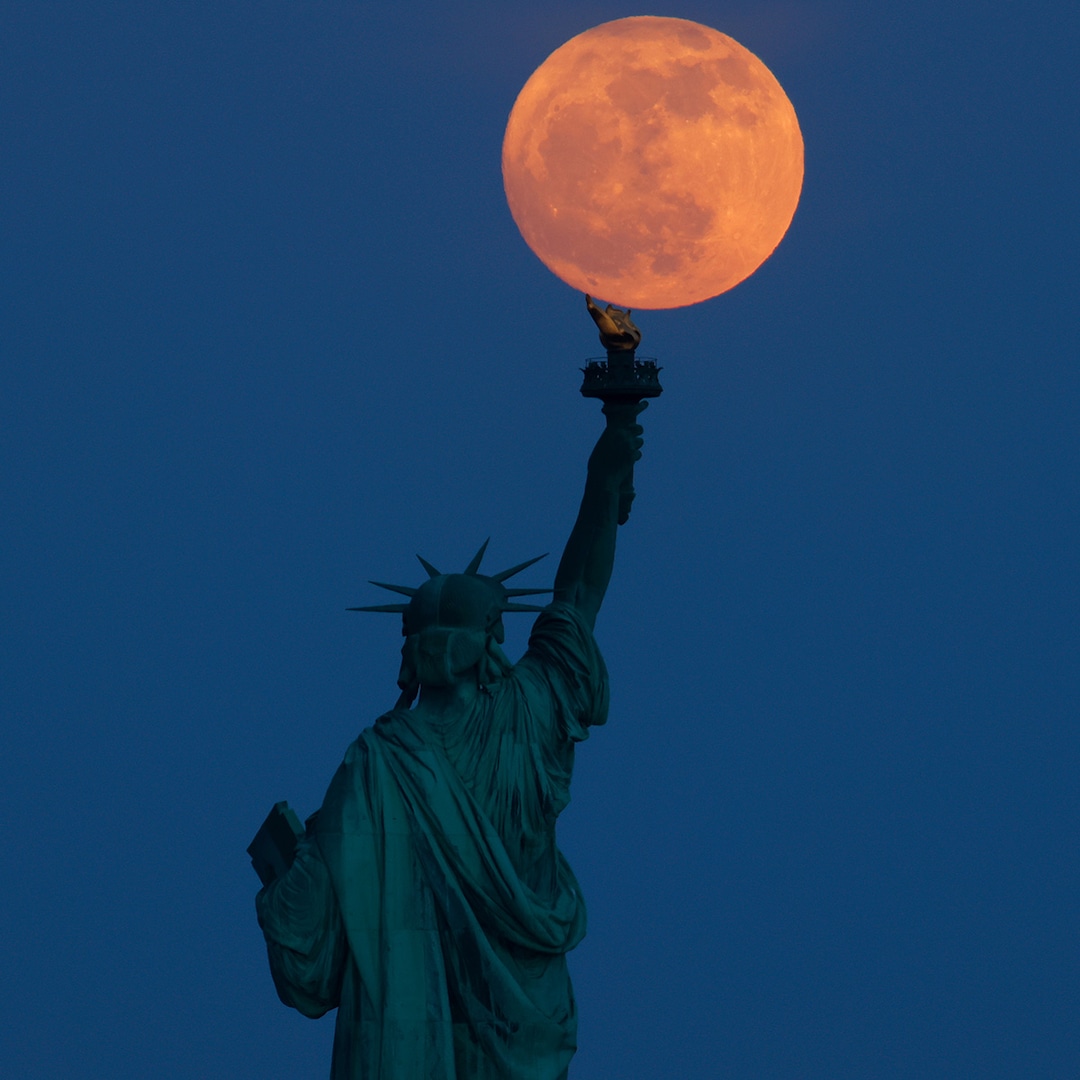April showers bring May flowers—and the full flower moon.
The moon—which will peak at 12:56 p.m. ET May 12 but will appear full that evening—is the third and final micromoon of 2025. Smaller than the usual full moon, it is 251,939 miles away from Earth instead of the normal 238,855 miles, according to NASA.
As for how the flower moon earned its springtime name?
The Old Farmer’s Almanac began publishing full moon names in the 1930s, which were inspired by those associated with Native American tribes. For instance, the flower moon—the name of each full moon in May—was given by the Algonquin tribes.
With the cold winter days behind us, the illuminated flower moon brings in a new energy. As the almanac noted, “The May Moon marked a time of increasing fertility with temperatures warm enough for safely bearing young, a near end to late frosts, and plants in bloom.”
Along with nature in bloom, celebrity astrologer Kyle Thomas believes this chapter will provide a chance to reevaluate priorities.
“Full moons in Scorpio bring great attention to how we share resources in our lives and within the world,” he shared on his website. “Striking a balance between what we give and receive will be extremely important and any imbalances within these themes will be tremendously important to face.”
The next full flower moon will dance across our sky May 1, 2026, according to the almanac. But don’t worry, the Strawberry Moon in June and Buck Moon in July are just around the corner.
For a closer look at the flower moon, keep reading.
When Is the Full Moon?
The full flower moon reached its peak at 12:56 p.m. on May 12, 2025, and will appear full for days after, according to the Old Farmer’s Almanac.
Why Is It Called the Flower Moon?
Every full moon in May is called a flower moon, which came from the name given by the Algonquin Native American tribe.. The moniker is inspired by the budding plants blooming across North America.
“Flowers spring forth in abundance this month,” the Old Farmer’s Almanac notes. “The May Moon marked a time of increasing fertility with temperatures warm enough for safely bearing young, a near end to late frosts, and plants in bloom.”
Other Native American tribes had different names for the moon, including the Corn Moon, Corn Planting Moon and Mother’s Moon. Meanwhile, in old English, it was called the Milk Moon.
When Is the Next Full Flower Moon?
After the full flower moon dances its way off the night sky, it’ll reappear on May 1, 2026.
When Is the Next Full Moon?
Be prepared to welcome the strawberry moon June 11, buck moon July 10, sturgeon moon Aug. 9, corn moon Sept. 7, harvest moon Oct. 6, beaver moon Nov. 5 and cold moon Dec. 4.





